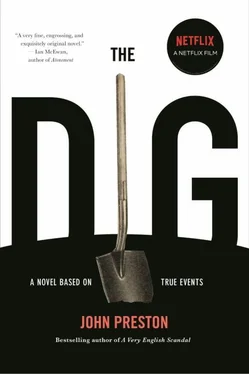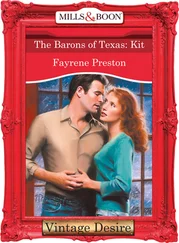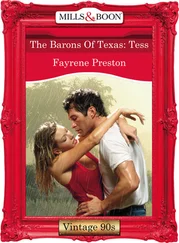We gazed at one another. “Perhaps I have not made myself clear,” I said. “I would like Mr. Brown to excavate one more mound.”
Reid Moir stared back at me. His gaze was direct, his foot still carefully crooked. Even with the door closed, I could hear the grandfather clock ticking in the hallway.
“However, I do not wish to be unreasonable,” I went on. “If Mr. Brown has not found anything by the end of next week, say, then I shall release him to do your bidding.”
This time he barely hesitated. “By the end of next week… The end of the month, as it happens. Very well, then.”
“I am grateful for your indulgence, Mr. Reid Moir,” I said. “Now, was there anything else you wished to talk about?”
“As a matter of fact there was.” He held out the book he had with him. “I thought you might care for a copy of my latest work.”
“How very kind.”
“It’s about flints.”
“Flints?” I repeated, sounding rather more surprised than I might have wished.
“With particular reference to the Cromer field bed in Norfolk.”
“I shall greatly look forward to reading it,” I told him.
He uncrossed his legs and stood up. Maynard followed suit. At the front door I wished them goodbye. Reid Moir lowered his eyelashes, while Maynard gave a mournful-looking smile.
It continued to rain throughout the day. Robert stayed indoors and played with his train set in the nursery. He insisted that he was perfectly happy on his own, even claiming that he preferred it. From downstairs, I could hear the noise of the engine going round and round the track. I found I could not wait for the day to end. Both of us went to bed even earlier than usual.
The following morning the weather had barely improved. Despite the rain, Mr. Brown had insisted on returning to work. Together with Jacobs and Spooner, he removed the earth that had buried him, placed planks along the side of the trench to ensure that there were no further landslides and continued with his excavation.
At eight thirty Mr. Lyons drove me into Woodbridge to catch the London train. On the journey I started to read Mr. Reid Moir’s book about flints. However, I am afraid I found it rather heavy going and put it aside after only a few pages.
When we reached Liverpool Street, I queued for a taxi and asked to be taken to Earls Court. As we drove down the Strand, I was aware of a strange atmosphere of gaiety, of excitement. A tightening in the air that I had not noticed before. People sauntered along the pavements and peered into shop windows as they had always done, the men in shirtsleeves and the women in blouses. Yet there seemed to be something exaggerated, something not wholly plausible, about their nonchalance. They moved like loosely knotted figures who at any moment might snap into rigidity.
The cabbie told me that on the previous evening there had been an air-raid drill near to his home in Battersea. A warden had driven round the streets, throwing out different-colored tennis balls from his car. Yellow and green balls denoted gas; red denoted high explosives, while those with red stripes represented incendiary bombs. The exercise, said the cabbie, laughing delightedly, had been a fiasco. Despite the warden’s entreaties, people had immediately picked up the balls and begun throwing them at one another.
In Hyde Park, trenches had been dug. A mass of zigzagging lines now fanned out from Speaker’s Corner. In order to dig the trenches, a great many trees had also been felled. Several of the stumps were still sticking out of the ground. The wood looked very soft and white, like chicken flesh.
Further down the Bayswater Road, on the western side of the Serpentine, I was astonished to see that an enormous crater had appeared. This crater must have been forty feet deep and easily twice that across. Around the top the earth was dark brown, shading down to yellow at the bottom. On the road beside it was a queue of cars. Several of them were towing trailers.
Without my asking, the cabbie leaned back and told me that twenty sites had been identified around London where large deposits of sand could be found. People were being encouraged to fill sandbags and place them around the doors and windows of their properties. As yet, however, scarcely anyone had bothered to do so.
He dropped me in Nevern Square. Certainly there were no sandbags here, or any other signs of preparation. Everything appeared just the same as always: the same orange-brick terraces with their long, sceptical-looking windows, the same flowerpots with stiff and crinkled blossoms, the same clusters of unpolished bells beside the front doors.
I rang the bell of Mr. Swithin’s flat. He was waiting by his front door when I came out of the lift and led the way down the corridor into his living room. As usual he sat at the end of a gate-legged table while I sat on his left. The wallpaper was patterned with an endlessly repeated trellis of bamboo, relieved only by a circular mirror above the fireplace and four chalk drawings of Sealyham terriers on the wall facing me.
For a few minutes Mr. Swithin chattered away about the news and the weather. He did so almost apologetically, as if he knew quite well that I had no real interest in talking to him directly.
Eventually, he entwined his fingers, leaned forward on his elbows and peered into that shadow world through which threads of personality run like just-dissolving colors. I knew not to take too much notice of those spirits who came through first of all. As in life, it was the ones who were keenest to make themselves heard who invariably had the least to say. But only when they had spoken their fill could others, less frivolous and more diffident, be allowed to take their place.
Whenever I try to imagine the afterlife, I find myself envisaging an anxious, shiftless crowd. Lines of colorless people queuing endlessly for a series of public telephone boxes where operators, struggling with defective equipment and only able to speak a few phrases of their language, attempt to connect them to whoever awaits their call.
It is not a happy picture, however much I try to bathe it in an appropriately amber glow. Yet somewhere in there, too courteous to make a fuss or to shoulder his way to the front, is Frank. Of that I have no doubt. In time, he must come through. It is just a matter of being patient, of not expecting too much. In the meantime, though, there are only stray phrases and occasional glimpses to sustain me. A thimbleful of endearment. A familiar white line of parting on a head unaccountably twisted aside. Nothing more. Or rather nothing except for the same amorphous blanket of reassurance, the same anonymous balm.
But today nothing seemed to be strained through the trelliswork. Nothing that anyone with a modicum of discrimination could permit themselves to latch on to.
Mr. Swithin offered a young man with beautiful hands and a port-wine stain down one side of his face. “He’s mumbling a little,” he said, “although I can see his face quite clearly.”
“I have no recollection of anyone like that.”
Swiftly, he transferred his attention elsewhere.
“An older lady with an ample bosom who always took particular care with her appearance?” Mr. Swithin spoke with the regretful air of a butcher who knows that all his choicest cuts have already been taken.
I shook my head.
“Are you quite sure?” he asked. “It can often take some time to work out a connection.”
“Quite sure.”
We continued to sit there. Mr. Swithin’s fingers flexed hopefully away, while the Sealyhams gazed down from the wall. We carried on like this for another twenty minutes. In the end, Mr. Swithin said, “I don’t appear to be having much luck today, I’m afraid. Sometimes it’s just like being lost in a fog.”
Читать дальше












